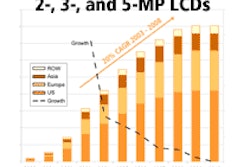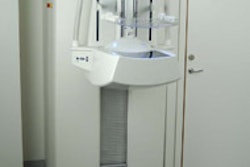Undoubtedly, the Accreditation Council for Graduate Medical Education (ACGME) had the best of intentions when it reformed resident working hours, limiting them to 80 hours per week. But more than a year after these reduced hours were implemented in July 2003, the effect of the change remains largely unknown, according to a study in the Annals of Internal Medicine.
"A primary concern with the modification of resident work hours is the potential loss of continuity of care," wrote Dr. Kathlyn Fletcher and colleagues. "The trade-off between the positive values of continuity of care and decreasing resident fatigue has important implications for patient safety" (Annals of Internal Medicine, December 7, 2004, Vol. 144:11, pp. 851-857).
Fletcher's group, from the Clement J. Zablocki Veterans Affairs Medical Center in Milwaukee, performed a meta-analysis of studies on residents' work hours conducted between 1966 and 2004. They included studies that assessed system change designed to counteract resident sleep deprivation or fatigue, and that also included an outcome directly related to patient safety. For this study, "intern" referred to physicians in their first year of postgraduate training, while the term "resident" was reserved for those in the second year or higher.
Ultimately, out of 343 reviewed papers, only seven met the criteria above. The group highlighted one study in particular as noteworthy. Dr. Laura Peterson and colleagues from Brigham and Women's Hospital in Boston prospectively compared three simultaneous systems of coverage: primary team, cross-coverage by another team's intern, and a night-float system.
Their results indicated that a greater risk for an adverse event was more likely with a cross-coverage and night-float combination than with primary team coverage (Annals of Internal Medicine, December 1, 1994, Vol. 121:11, pp. 866-872).
According to Fletcher's results, "evidence on patient safety is insufficient to inform the process of reducing resident work hours." Published studies are flawed in various ways, either because of questionable quality, lack of a clinical trial setting, or the use of different forms of work-hour interventions, such as night-float or cross-coverage.
"Who provides safer care to patients whose health is in flux?" they asked. "A well-rested resident who knows the patient primarily through a report, or a fatigued resident who has firsthand knowledge through performing the admitting history and physical exam?"
Any institution looking to review its residents' workload and comply with ACGME standards must find a balance between minimizing provider fatigue and maximizing patient care, including continuity of treatment. "Perhaps the continuity between admission and the remainder of care is more important than continuity from hour to hour," the authors stated.
Ideally, future studies on this issue should meet the following criteria, according to the group:
- Evaluation of patient safety outcomes
- Coordination across several institutions
- Randomization of trials
- Analysis of discontinuing care between admission and hospitalization versus hour-to-hour care
- Adequate study funding through a grant
Until then, "we advocate some caution as U.S. residency training programs conform to ACGME guidelines," they said.
By Shalmali Pal
AuntMinnie.com staff writer
December 21, 2004
Related Reading
Accreditation body sets medical residents' work time limit at 80 hours a week, February 19, 2003
Resident physicians still not getting enough sleep, October 17, 2004
Copyright © 2004 AuntMinnie.com



















